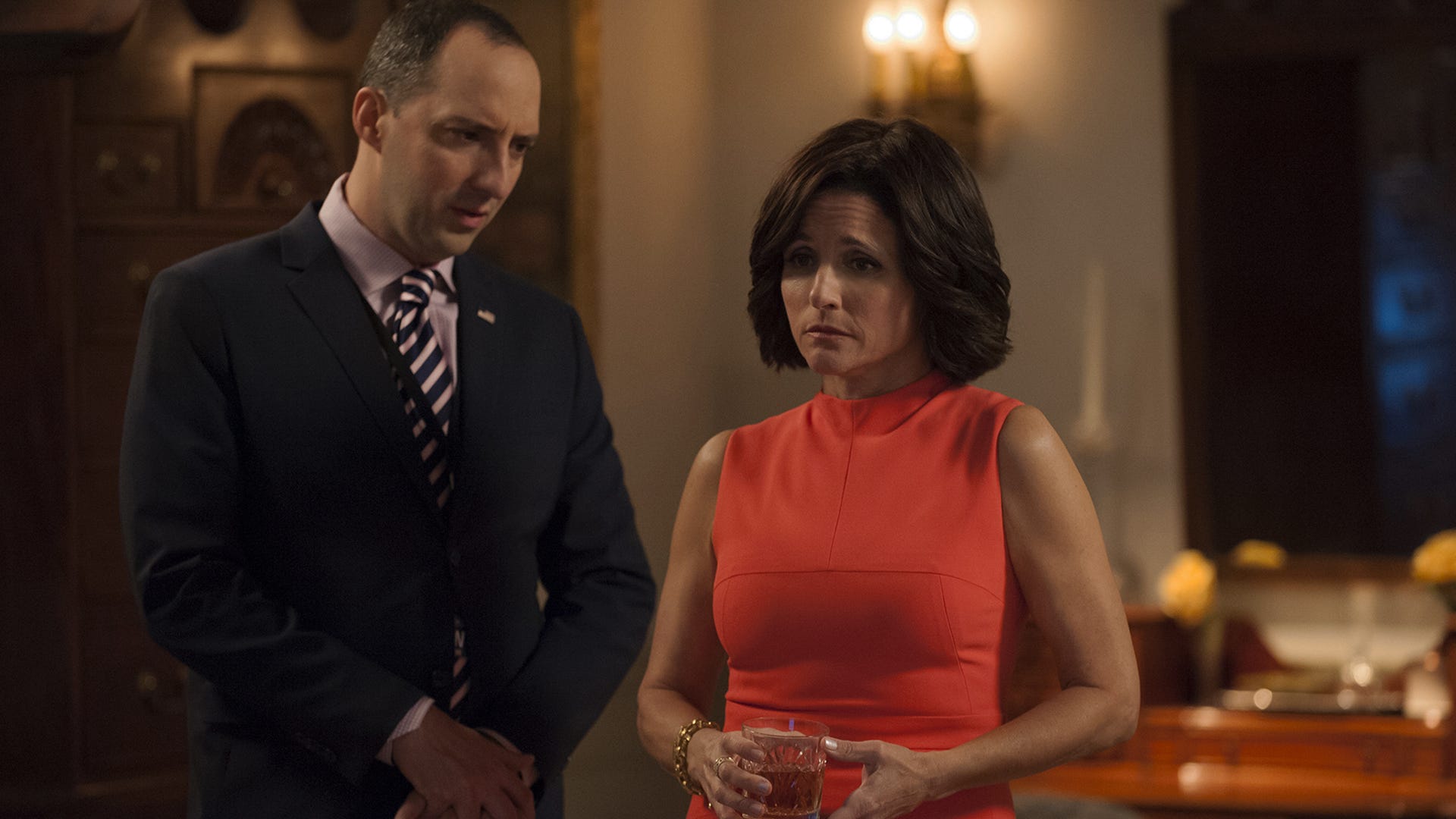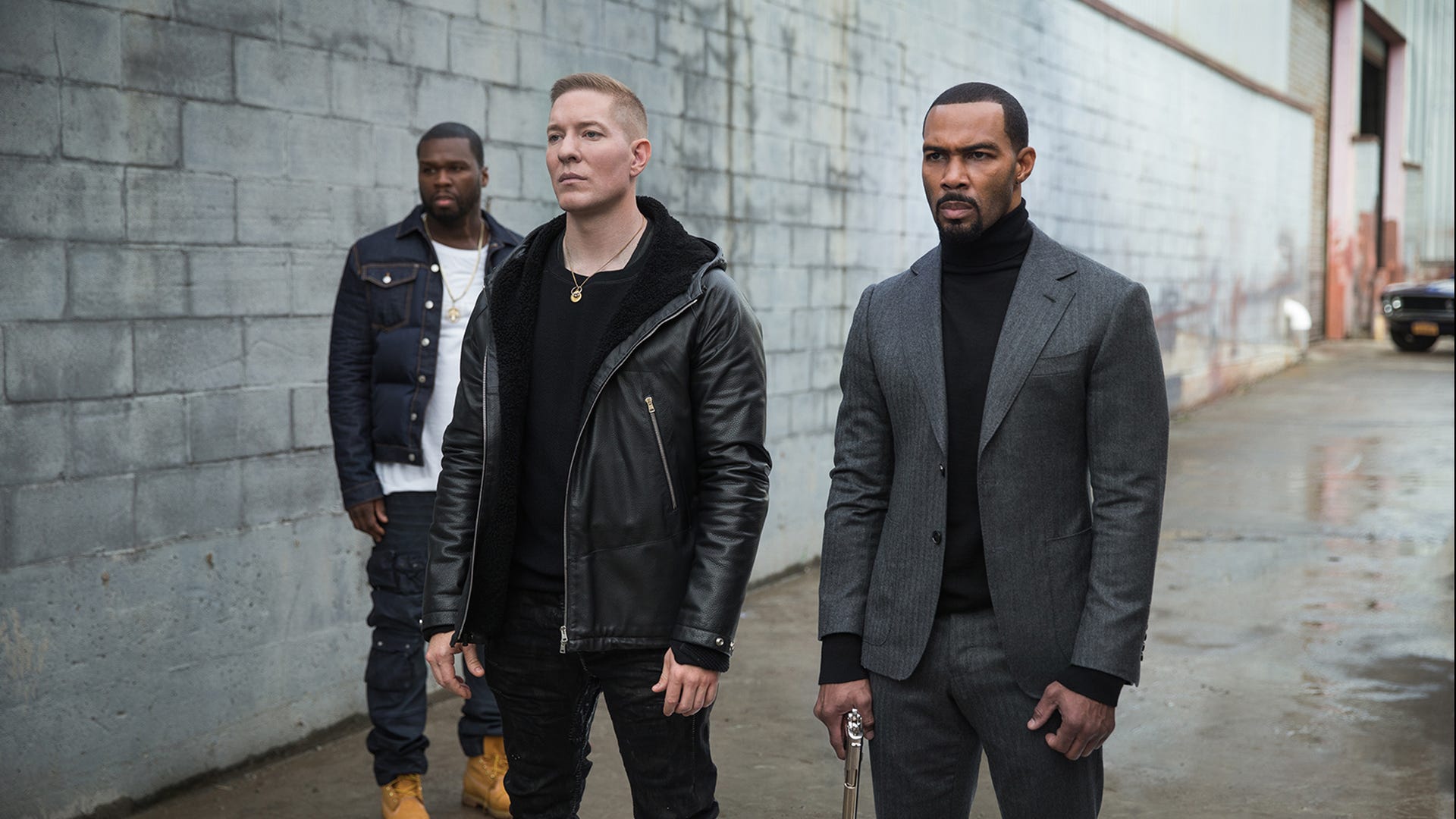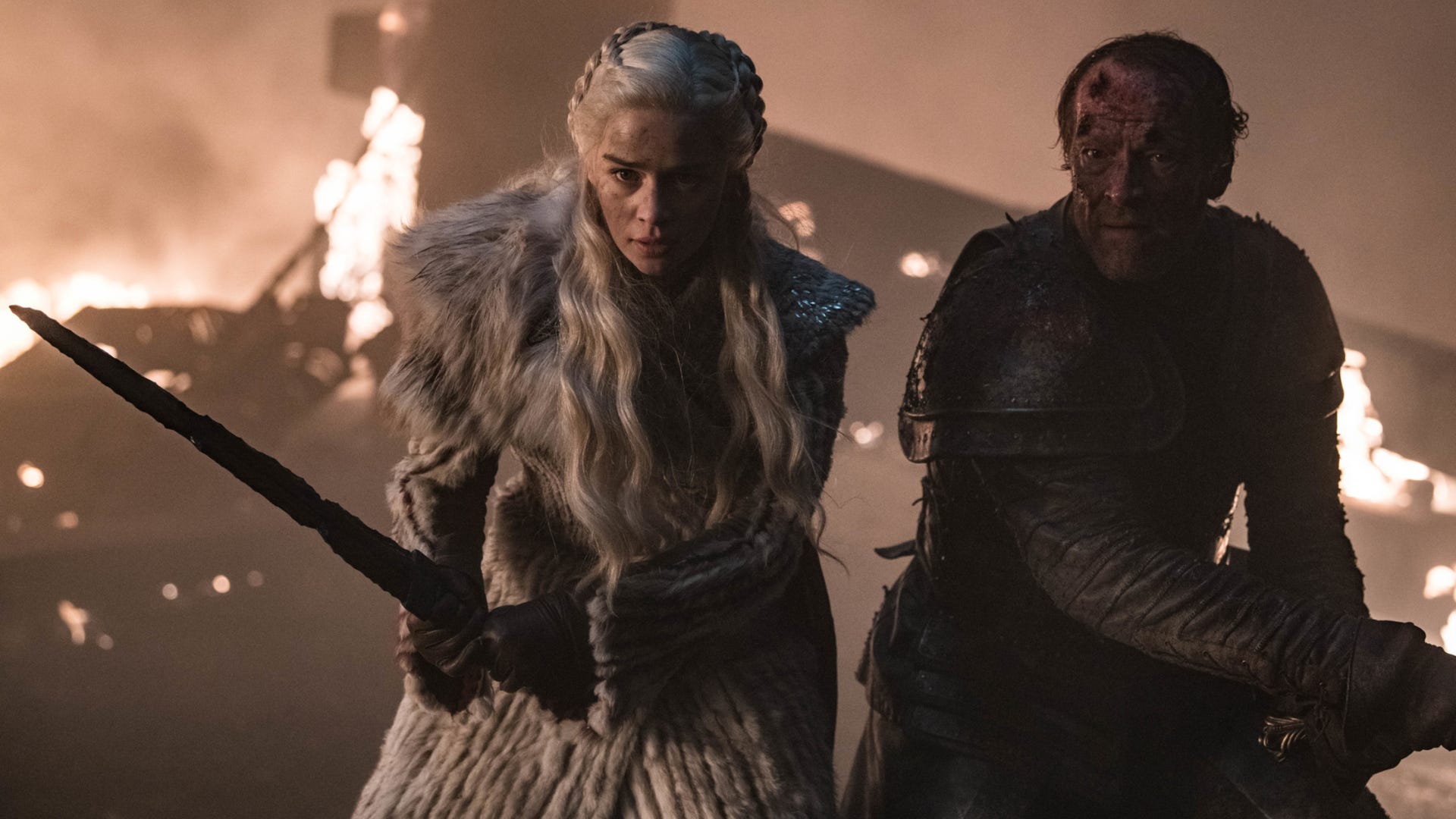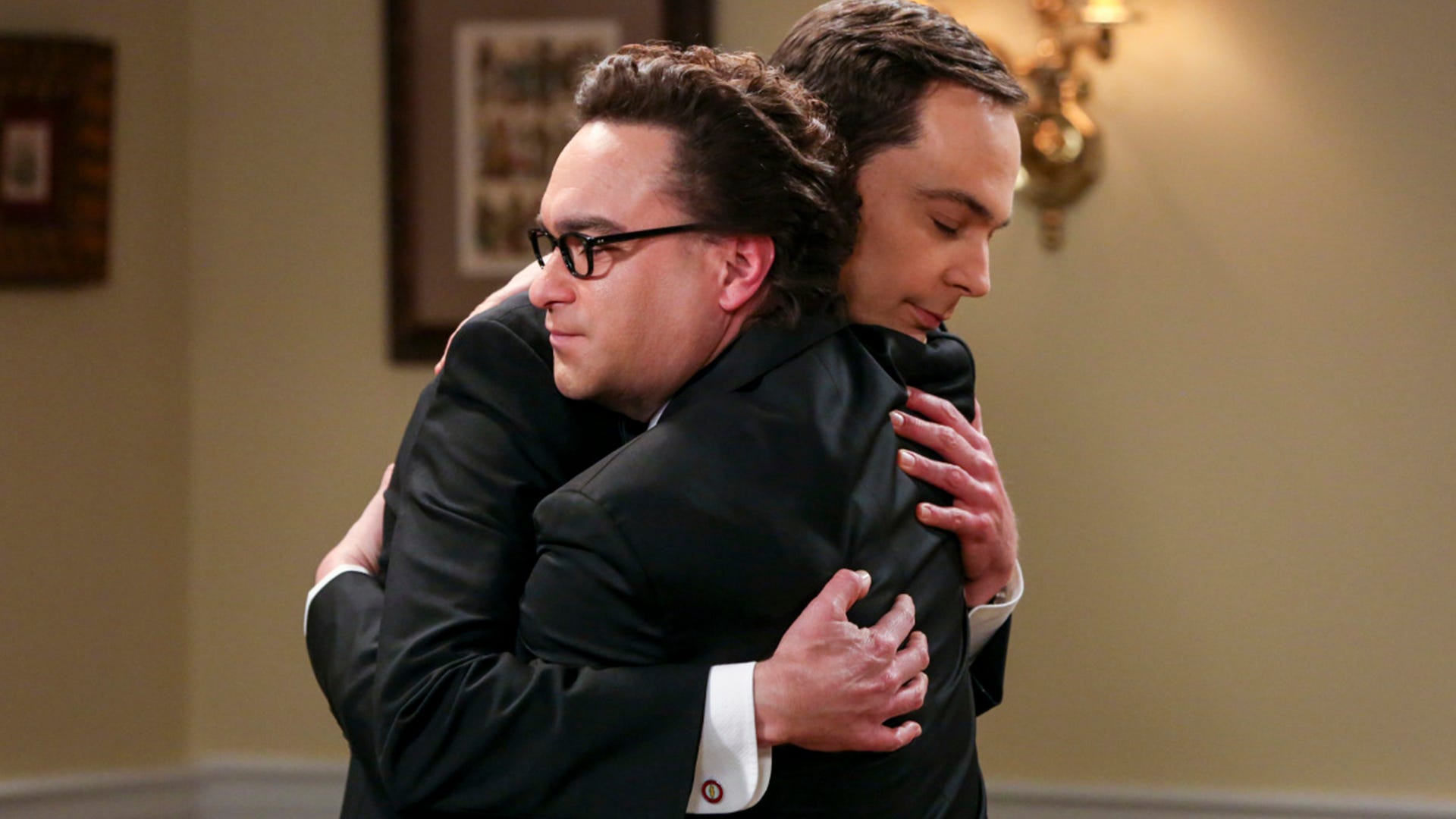Join or Sign In
Sign in to customize your TV listings
By joining TV Guide, you agree to our Terms of Use and acknowledge the data practices in our Privacy Policy.
All TV's Biggest Hits Are Over. What Now?
What will TV look without megahits on the lineup?
All good things come to an end, but for TVophiles in 2019, a more accurate idiom might be, "All good things come to an end, all at once." Game of Thronesmelted down.The Big Bang Theory's flame was extinguished. Veep and its perpetually doomed dame Selina Meyer died. Later this summer, Orange Is the New Blackcomes to an end and Starz's prize pony Power goes dark. It's not just that a lot of shows are coming to a close in 2019, or even that a lot of good shows are ending in 2019; rather, a sizeable chunk of the shows that became bona fide cultural talking points -- shows you'd put in a time capsule, say, assuming Earth lasts another couple of years -- will no longer produce new episodes.
While none of these series had much in common thematically, they're united by consistently high ratings and their ability to dazzle viewers, make business people happy, and reverberate through pop culture as a whole -- the type of shows so massive that grandmas and tweens alike have heard of them. What will happen when all the juggernauts are gone?

Tony Hale, Julia Louis-Dreyfus; Veep
Lacey Terrell/courtesy of HBOThis is a sudden, surprising moment in a booming market. If TV was a safari park (humor me for a minute), it's as if, all of a sudden, the elephants, lions, rhinos, and gorillas quit, sending guests home with very lovely but unremarkable videos of wildebeests, zebras, and impalas on their phones. That's nice, but, c'mon. You go on safari, you wanna see lions! You turn on the TV, you want to see dragons, brilliant political satire, or gangbangers get shanked. Yes, there are many, many more shows on television that remain, quite a few of them excellent. But, with the exception of shows likeThe Walking Dead(which is showing its age), Stranger Things, Grey's Anatomy, and The Simpsons, the long-running prize attractions, the kings of the jungle, have gone extinct. So now what?
Everything We Know About the Game of Thrones Prequel So Far
Well, for starters, this may be a temporary issue. When Watchmen, Damon Lindelof's adaptation of the acclaimed comic novel, comes to HBO in the fall, it could fill the genre/sci-fi hole in Game of Thrones' viewers' hearts -- or at least stop the bleeding until the prequel. Although the spin-off is not expected until 2020, please believe HBO has oceans of Red Bull and whatever else on deck for its creative teams to get that out as fast as possible. Apple and Disney will have done their best to integrate those companies' streaming services into consumers' lives by fall too, in the process unleashing seductive, high-octane fare for the former (Morning Show, Oprah's works, J.J. Abrams' projects) and proven franchise hits for the latter (Star Wars, Marvel) bound to be marketed so heavily that people who don't watch them will feel like they still listen to music on cassette tapes.

Power
Paul Schiraldi/StarzBut that's the Catch-22 of streaming. This boon in services and good-to-terrific content on said services has given viewers a bit of TV ADHD (and this is from a person who actually has ADHD, so don't @ me). By that I mean: There is so much to look at in so many places that picking the handful of shows to be legitimately obsessed with is really hard (unless you sign up for TV Guide's newsletter and follow us on social media, wink wink, nudge nudge). Very few streaming-only programs have resonated in the manner of Netflix's Stranger Things -- a show so zeitgeisty that people can spot its logo on a lunchbox across the room. While Netflix can surely count on another gold rush soon, with content from Shonda Rhimes, Ryan Murphy, and Kenya Barris in the pipeline, right now the industry sits in a refractory period. The absolutely stunning Star Trek: Discovery aside, CBS All Access has yet to produce a show that sends people running to it en masse. (TV Guide is owned by CBS Interactive, a division of CBS Corporation.) And while Hulu crafts some sexy trophy seducers, its best stuff (The Handmaid's Tale, Shrill, and the hilarious PEN15) speaks to cineastes with refined sensibilities and/or intellectually adventurous palates. All these artisanal pieces of moving literature make us all richer by existing. But none of them have been able to capture the affections of the everyperson like Game of Thrones -- a show that appealed to the high-minded and masses alike by blending fantasy with sex, parables with violence, and complicated backstory with archetypal, easy-to-spot villains and heroes.

Game of Thrones Season 8, Episode 3: "The Long Night"
HBO/Helen SloanIndeed, the greatest benefit of this modern TV era has been an unearthing of voices that previously went unheard. Insecure's stories about black women are as funny as they are insightful and universal; Vida brings vital understanding about Mexican Americans to the forefront; Netflix's Special puts a finer point on gay male life by observing it from the experience of a man with cerebral palsy; Ramy follows a first generation Muslim American balancing his Egyptian heritage and millennial U.S. culture. These are important stories we're fortunate to see. And yet, the more granular shows become, the greater they risk alienating masses who believe, correctly or not, such specific slices of life won't resonate.
It's not to say that The Big Bang Theory's quartet of mostly-white science nerds appealed to everyone, but the show's combination of Chuck Lorre wizardry and comforting canned laughter remained reliable up until the end -- a distinction not many of the few remaining multi-camera comedies can claim. Will & Grace and The Conners remain solid for NBC and ABC, respectively, but despite being as familiar as mom's chicken soup, neither, frankly, dazzles like they once did. Now that the smoke has cleared in the aftermath of Upfronts, it's clear most of the big broadcast networks are playing it safe and/or hoping something, anything sticks -- choosing overall to greenlight less, rely on familiar faces (The Kenan Show at NBC), expand existing properties (mixed-ishat ABC), and hope tried-and-true cop and lawyer shows (Deputy on Fox; For Life on ABC) will work if producers just swap out some key details and put a new face on them. (The CW's new crop might have the greatest chance of finding a new phenomenon). At present, only This Is Usand The Masked Singer remain confident, triumphant, sure winners likely to draw the same kind of familiar desire as those shows that ended this year owing to their heartwarming escapism and consistent word-of-mouth buzz. Of course, we won't know that for sure until they return in the fall. (Shucks, maybe the only true marvel left is RuPaul's Drag Race.)

Jim Parsons and Johnny Galecki, The Big Bang Theory
Michael Yarish, CBS
We'll know which of the new and returning shows might become new institutions around the time the leaves begin to fall. Hopefully some new unifying, all American TV darlings will emerge. Let us light a candle and pray that the TV gods anoint a new one, because, in 2020, Modern Family, Empire, Supernatural, Arrow, Schitt's Creek, Suits, and Vikings bid farewell too.
